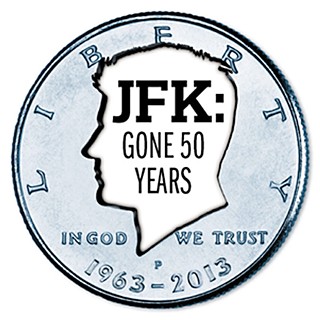Writers on Kennedy
What we think about when we think about JFK
By Fred McGhee, Fri., Nov. 22, 2013
'Profile in Courage'
By October of 1960, the civil rights movement was in full flower. Three weeks before the presidential election, Martin Luther King Jr. was arrested in Georgia for a minor traffic violation; he had been living in Georgia for three months but was still using his Alabama license. Jim Crow justice was swift; King was convicted and sent to the state's maximum security prison to serve four months on the chain gang. Fearing for King's life, civil rights leaders appealed to both presidential candidates for help.
Nixon ignored the appeal. The Kennedy camp did not. The Massachusetts senator was no civil rights champion, but he did have people around him who understood that the issue of civil rights was fundamentally more about morality than political calculation. John F. Kennedy's brother-in-law, Sargent Shriver, helped him to identify his moral center on this critical issue. Bobby Kennedy called the Georgia judge and helped secure King's release from prison. The outcome? Black people broke decisively from the party of Lincoln, and they voted en masse for the Democratic ticket.
It was a profile in courage, one of many, and remains a leading reason why JFK's death continues to be a tragedy.
Fred McGhee is a maritime archaeologist, historical anthropologist, and an authority on the history of African-Americans in public housing and on community development issues. He is the author of Two Texas Race Riots and the forthcoming Austin's Montopolis Neighborhood.
Got something to say on the subject? Send a letter to the editor.








